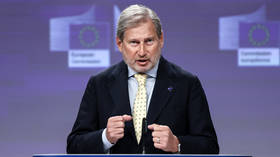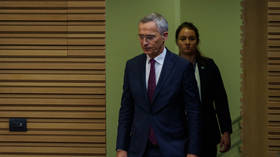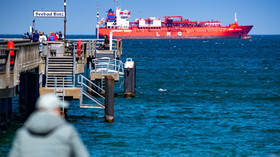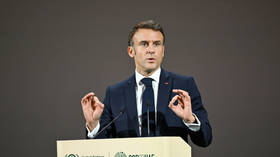Germany has no time to discuss EU budget – bloc official

The German government has been unable to take part in discussions on EU finances, the bloc’s budget commissioner, Johannes Hahn, has told journalists. Berlin is too concerned with domestic issues to commit resources to Brussels, he added.
Earlier this year, Germany – along with several other member states – opposed the European Commission’s request for an extra €66 billion ($72 billion) to cover unexpected spending, suggesting that Brussels should instead slash other areas of its current budget.
German Chancellor Olaf Scholz’s cabinet is grappling with a massive fiscal shortfall at home after the Constitutional Court last month prohibited it from repurposing €60 billion ($65 billion) in unused funds left over from the Covid-19 pandemic.
In a report on Friday, Politico quoted Johannes Hahn as saying that the “biggest problem is that Germany is so distracted by domestic issues that they literally don’t find time to deal with” EU finances.
The official argued that Berlin, as the “biggest economy in the European Union,” has a “particular responsibility,” and that without Germany’s participation, “we will not come to an agreement.”
The commissioner also rejected suggestions previously made by a group of member states led by Germany, which called on Brussels to redeploy existing funds to finance new priorities. Hahn explained that this would be difficult to implement in practice, with the EU budget already in the red.
The issue is expected to dominate the agenda at the European Council summit on December 14-15.
The extra funding that the European Commission wants to secure would, among other things, go to Ukraine, with some €17 billion in grants envisaged.
Last month, Ukrainian Finance Minister Sergey Marchenko warned that Kiev would require financial aid from the start of 2024 to fill an estimated $29 billion budget shortfall, or else it could go bankrupt.
Also in November, Reuters quoted several anonymous diplomats as saying that some member states, including Germany, had expressed serious misgivings about Brussels’ plans to shell out some €20 billion ($21.4 billion) on military aid for Ukraine over the next four years. One official told reporters at the time that the “likelihood of [EU Foreign Policy Chief Josep] Borrell’s original proposal being adopted was declining.”
Late last month, German Finance Minister Christian Lindner said his country faced a €17 billion ($18.66 billion) gap in the 2024 budget following the Constitutional Court’s ruling.






















